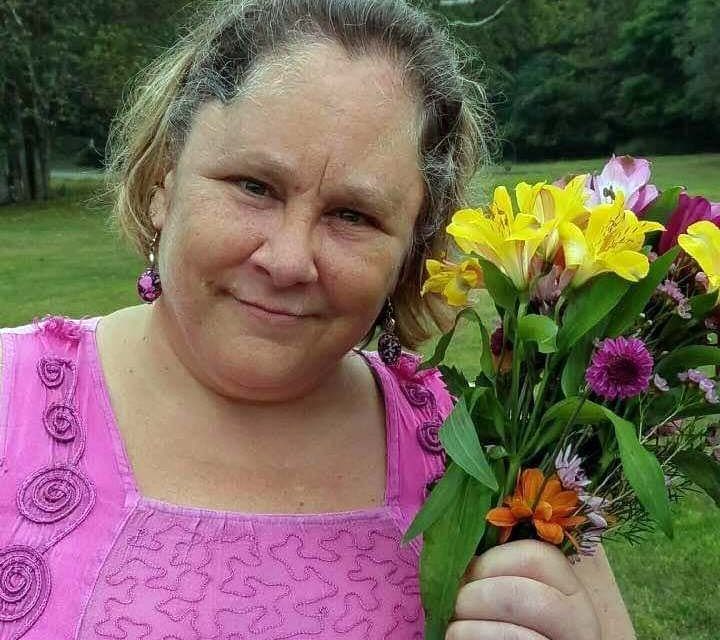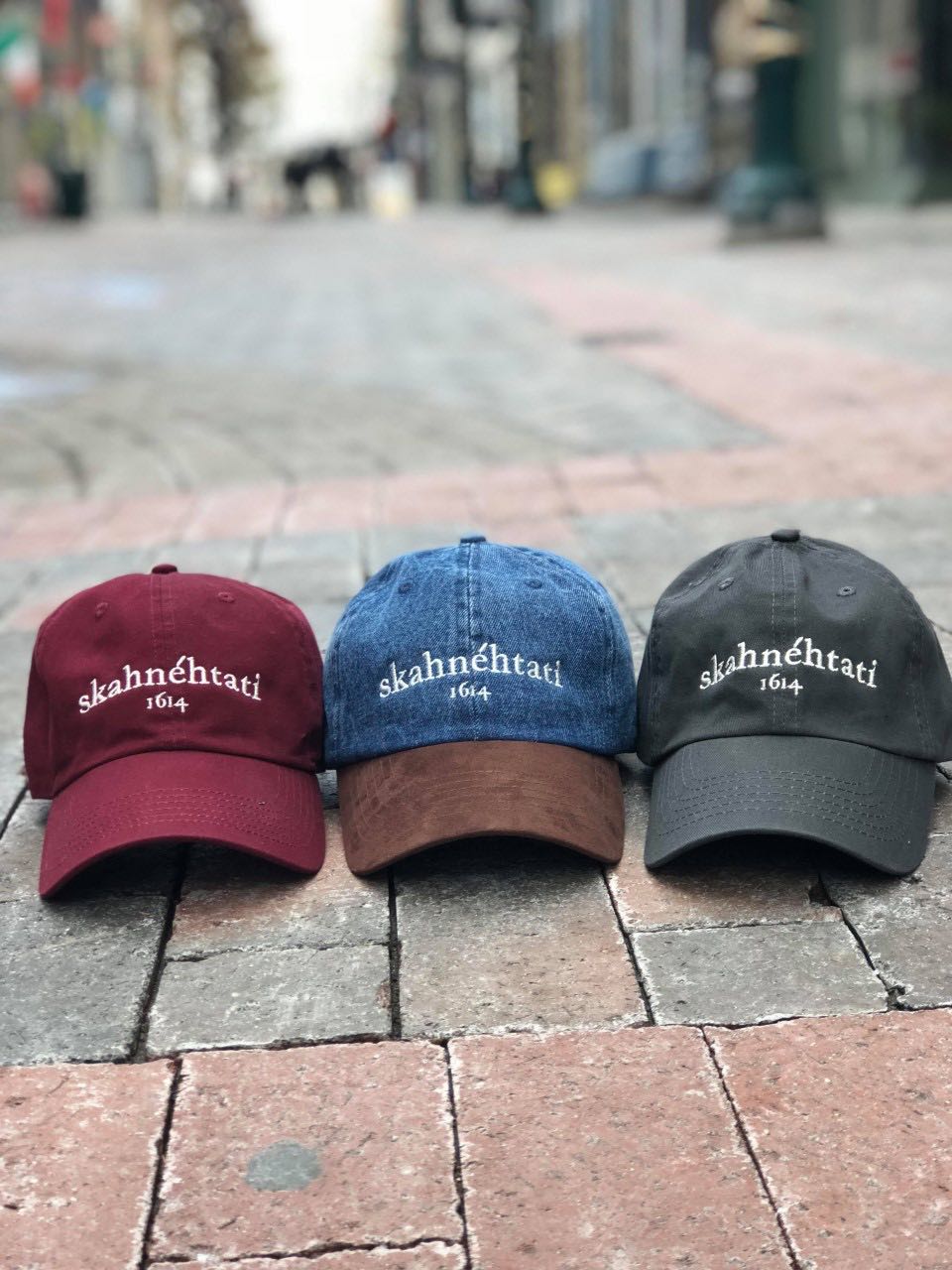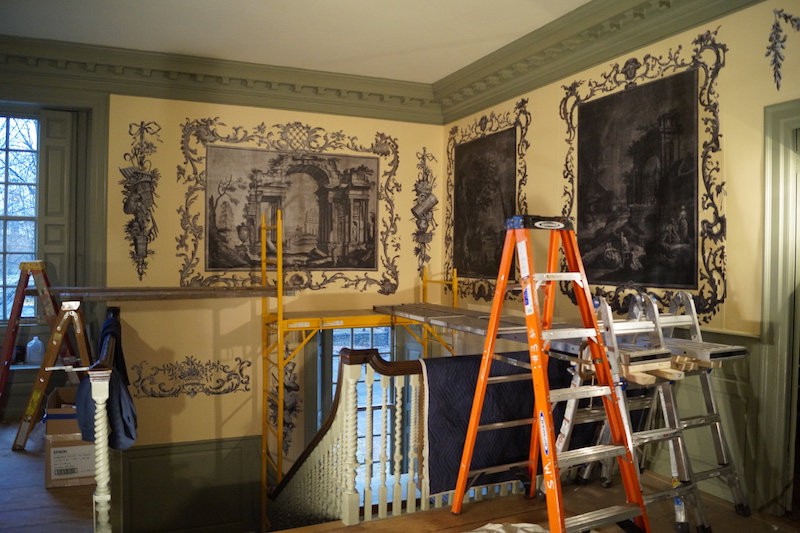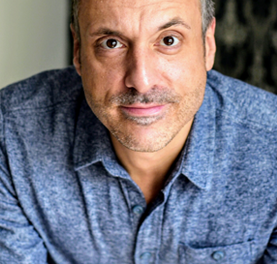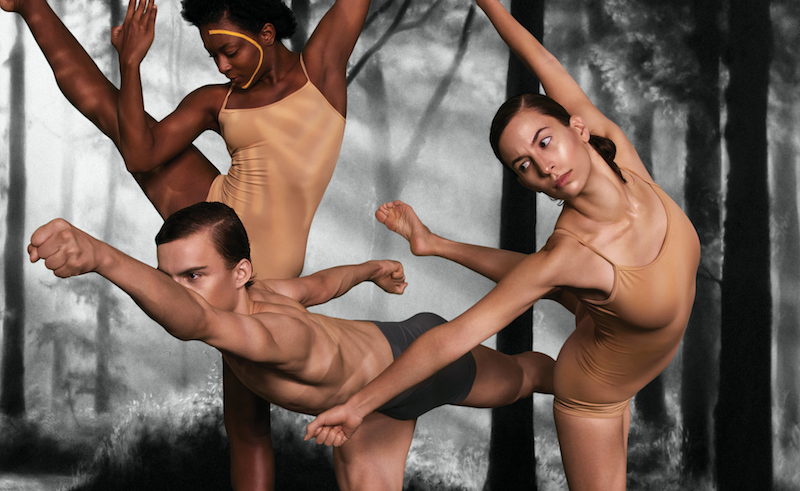Deaf theatre artist, visual artist, makeup designer
Current hometown: Troy
Age: 50
Current project: Working with an acting coach online, and missing live performance terribly.
Collaborative Media’s Maker of the Week is made possible by KeyBank.
I was intrigued when Seana Munson suggested a Maker of the Week profile of herself as a deaf theatre artist: When I was acting with her myself in plays and musicals some 20-odd years ago, I never got the sense that this was part of her story. But I did know she had a condition called Turner syndrome, which affects only females and is related to missing genetic material in one of the two X chromosomes. Our interview was a chance to learn more about how the syndrome has presented her with both challenges — and some very unique gifts.
I don’t think you had a hearing issue at all when we were acting together, back in the ’90s. Has that developed over time?
It has certainly gotten a lot worse since then. But we have always known, because of problems that I have, that my hearing would continue to get a lot worse as I got older. And it has. Now I’m 50, and I only have about half hearing. My hearing aids do help a lot, but they’re not perfect, you know what I mean? It presents challenges.
It’s related to the condition I have called Turner syndrome. One of the things most of us with Turner syndrome have is just a slight underdevelopment in the ear. The underdeveloped tubes trap fluid, and that leaves us very prone to ear infections. As a kid I had a whole string of very severe ear infections. You know how when you get a cold, your ears get a little clogged? My ears would just be so inflamed, and so completely clogged and congested that I actually broke one of my eardrums probably like five or six different times.
Tell me more about Turner syndrome.
It’s a chromosomal anomaly, kind of like Down syndrome is an extra 21 chromosome. It’s along those lines, and lots of different things can happen because of the chromosomal karyotype that I have… hearing loss is one of the most common.
I was diagnosed with Turner syndrome when I was 15, and of course when I was 18, I went off to college. One of the first people I met in college was a year ahead of me, she was a sophomore… I met her because she was a theatre major.
After just a few months it came out that she also had Turner syndrome. Neither of us had ever met anyone with Turner syndrome until then. She is now my best friend from college, and we’ve been best friends for 35 years. I mean, certainly theatre, and Turner syndrome — we just have more in common than any two people should have! She’s my right hand, definitely.
Where was college?
Saint Michael’s. It’s in northern Vermont, just a little bit north of Burlington… I was a double major in Spanish and theatre.
Verbal communication has always come very easily to me. It’s kind of a special strength that I have. Personality-wise, it’s very common for people with Turner syndrome. I was the kind of kid who never really said much. Even as a baby, when you first learn to talk, I never really had any words, to the point where my parents maybe started to get a little concerned. One day I just came out with a full sentence, and knocked my mother over, you know what I mean?
I picked up words and sentences in Spanish, even when I was little, just from hearing them on “Sesame Street” or wherever else. When I got to high school and was able to take Spanish, eventually they stopped making me take tests because they knew I was going to get 100. It just wasn’t required.
When I got to Saint Michael’s, I knew I wanted to major in Spanish, but there were two things that happened there. Because of my talent, I did very well in the placement exam. They jumped me way ahead… which left me all this time to take all the music and theatre that I wanted, and I did. The other reason that I chose Saint Michael’s… (it’s) a relatively small school, of about 2,000 students. About 500 of those students, probably 20 to 25 percent, are international students who come to learn English, or to learn to teach English as a Second Language. Most of those students are from Central and South America. So I had native-speaking teachers, I had native-speaking classmates, native-speaking roommates… I was surrounded by it, so for four years I spoke more Spanish than English. I would come home for Christmas for three weeks and have to switch gears: “OK, we’re speaking English now.” And then (I’d) go back to school and have to get back into Spanish.
So nobody in your family actually speaks Spanish?
No. No one in my family speaks Spanish, but I am fluent.
Those artistic inclinations and those verbal inclinations are very strong in women with Turner syndrome… and unfortunately, since I was always a singer and was always into speaking other languages, that has made losing my hearing that much more difficult… I mean, you knew me, I was a singer… I don’t really sing very much, and it’s mainly due to my hearing.
When did you first get involved with the arts?
I was in my first play when I was 8 years old, and that kind of never stopped… I was always a singer because I was raised in a family of musicians. I was the kid sitting on a chair singing, you know what I mean?
Tell me more about what that was like.
My dad, as a very young man — late teens, early 20s — was connected with a folk music organization here in the Albany area, and when he first started dating my mom… they made some really close friends, all of whom are musicians in folk music. When I say folk music, I mean guitars, banjos, fiddles, that kind of thing. And my dad plays the bass guitar. I was raised surrounded by that. I was born in March, and I went to my first folk festival on Memorial Day weekend, when I was like six weeks old.
Wow!
And so it was only natural — I love to sing! I immediately figured out where to place my voice, I could carry the tunes… and because of Turner syndrome, I was a cute little runt, you know what I mean? I was tiny, and people just ate it up. I kind of got into that. It was very hard for me as an adult to break out of that, I will say.
But I very much enjoyed it; I always knew that I needed to study music somehow, and music needed to be part of my life… when I got to college, I was finally able to have private voice lessons. Did some classical training, and singing in our college chorale, which was very well-known at the time. We traveled around the Northeast, and we did a British tour… I was a soloist, and I did really well with that. And then of course I did a few musicals when I was out of college.
It got a little competitive, and then I did live in Boston for a few years where there’s just not the theatre and musical opportunities that there are here, because it’s a big city and there’s so much more going on… that was also when my hearing started to go downhill. And I didn’t realize it because I was living alone. I was really struggling because I was unemployed for a while, which is why I ended up finally coming back here.
One year, I went to Maryland to spend Thanksgiving with my family… they had a bunch of friends over on Friday night to have leftovers, a little get-together. I was just kind of hanging out in the corner, not saying much, just kind of being a wallflower. And that’s never been me, you know what I mean? My mom was really wondering what was going on, and it was my brother Jeremy who finally realized. He said to her, “Mom, she can’t hear.”
From then on, I got my first hearing aids and it’s been much better.
How would you describe what you do as an artist today?
I would say two things. First, I’d say I’m an actress… I love to be on stage. Primarily a comedic and character actress. Those are my strengths, kind of what I enjoy most. But then I am also a painter and makeup artist, and I love to color — mainly because I love just color. I love mixing colors, playing with colors.
Another thing that goes along with Turner syndrome is that we tend to struggle with spatial relationships and directions… so when I’m painting, it’s about color, it’s not about representation of something, necessarily. If I sit down to paint or draw an object, I have a very difficult time.
When did you start doing that?
I moved home. For the first couple of years that I was back in the Albany area, I was still struggling; at one point, I was hospitalized in the psychiatric unit at Samaritan Hospital. And I remember there was a small group… we were sitting there talking, I was just doodling with either some crayons or colored pencils. I was drawing a big old tree. The social worker said to me, “That’s really nice, you should put that up somewhere.” There were some places in that particular activity room where people had drawn or painted on the walls.
It just never even occurred to me… drawing and painting and relationships and directions was never my thing at all. I kind of pulled back… but there was a space on the side of a white cabinet that had not been touched. I ended up painting that whole white cabinet with a big tree.
After that, I stayed with my parents in Maryland for about three months… my mother was kind enough to send me to a painting class once a week and buy me some supplies. For that whole three months that I was there, I did not stop painting. Like I would paint until 3 or 4 a.m.; I did not stop painting. I have painted from then on.
How much does being deaf get in the way? It sounds like you push through it pretty well.
I do, but it is a struggle. It’s a physical struggle in that… it’s much better if I can be looking at your face to hear what you’re saying. The phone is not so much a problem… my hearing aids are also Bluetooth, which is really cool; I love that. I have to have a special headset at work when I’m on the phone.
When I’m in a show… I always say to everybody, “Please understand I’m not ignoring you” because that’s my biggest thing: I don’t want anybody to feel like I’m ignoring them, but… if you’re whispering to me backstage, I may know you’re whispering to me but all I hear is the whisper. I cannot make out the words. I don’t have a prayer.
In some cases, it’s best to wear my hearing aids on stage; in some cases, it’s best not to. And if I’m not wearing my hearing aids (and) then I come offstage back into the dressing room… I cannot carry on a conversation with you during that time, until I put my hearing aids back in.
Sure. But if you don’t have them on, you’re still OK on stage?
It depends on the circumstances… COVID is actually a really good example of that. Because I need to be able to look at your face and see your mouth, masks are a nightmare. Even if you’re looking right at me and speaking to me, I know you’re speaking to me (but) I can’t make out what you’re saying.
And then my hearing aids are behind my ears. I have to put my mask on and off, on and off, on and off. That’s a nightmare, you know what I mean? Because the straps and everything are behind your ears. Even my audiologist said to me (that) they’ve had tons and tons of insurance claims for lost hearing aids because of the masks. I mean, I do it. We all have to do it, but it’s a huge hassle.
Tell me why you think the arts are important. I have been of the opinion for many years now because I’ve struggled with it myself, and because I’ve seen many other people struggle with it… that mental health is sort of the basis of health. The arts are a way of connecting your soul and bringing yourself out. Self-expression is crucial to mental health. If you don’t have your mental health, you may not be able to get out of bed. I really see mental health as a gateway
Find her online: Facebook
Wish to nominate a Maker of the Week? Email nominations.

